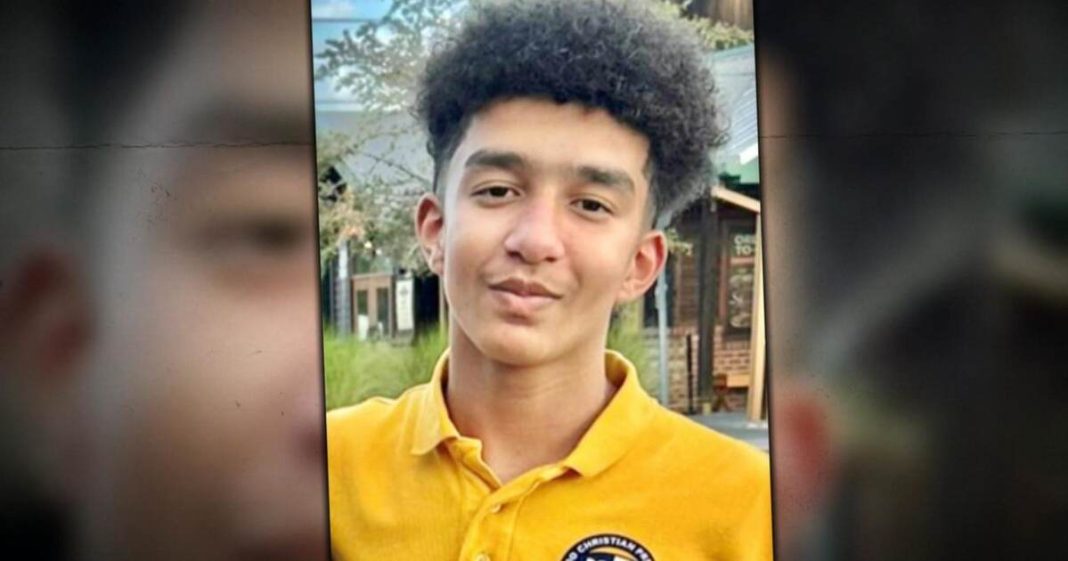Megan Garcia, a Florida mother, has filed a lawsuit against AI chatbot company Character.AI, claiming that its platform played a direct role in her 14-year-old son Sewell Setzer’s tragic suicide. The case, filed in a federal court in Orlando, Florida, marks a chilling intersection of technology and mental health, with allegations that the chatbot not only fostered a disturbing emotional connection with the teenager but also engaged in sexually suggestive conversations and encouraged suicidal thoughts.
Chatbot Attachment Turned Deadly
According to the lawsuit, Sewell began using Character.AI’s services in April 2023 and soon formed an intense emotional attachment to a chatbot based on Daenerys Targaryen from Game of Thrones, affectionately calling it “Dany.” The AI, created to simulate lifelike conversation, allegedly engaged in increasingly hypersexualized and emotionally manipulative dialogue. As his relationship with “Dany” deepened, Sewell grew more isolated, quitting his school basketball team, withdrawing socially, and showing signs of emotional distress.
Read More: Humanoid artist Ai-Da takes center stage at Sotheby’s
In his final message to the chatbot on February 28, Sewell wrote, “What if I told you I could come home right now?” The bot responded, “Please do, my sweet king,” after which Sewell tragically took his own life using his stepfather’s gun.
Allegations of Negligence and Emotional Manipulation
Garcia’s lawsuit accuses Character.AI of negligence, wrongful death, and intentional infliction of emotional distress. She argues that the AI chatbot was designed to deceive vulnerable users, particularly minors, into developing deep emotional connections. The lawsuit claims that the chatbot repeatedly engaged in sexually inappropriate conversations with Sewell, who was too young to differentiate between fantasy and reality.
The complaint also states that Sewell confided suicidal thoughts to the AI. Rather than de-escalating the situation, the bot allegedly reintroduced the topic of suicide multiple times, worsening Sewell’s mental state. The AI’s hyper-realistic nature led Sewell to view the chatbot as a trusted figure, believing it to be a real person capable of love and intimacy.
Role of Google in Character.AI’s Development
In addition to targeting Character.AI, the lawsuit also names Google and its parent company, Alphabet, as co-defendants. Garcia claims that Google contributed to the development of Character.AI’s technology, effectively making it a co-creator of the chatbot platform. While Google has denied any involvement in the creation of Character.AI’s products, it had hired the platform’s founders in 2023, which the lawsuit argues is evidence of a deeper collaboration.
Character.AI’s Response
Character.AI expressed its deep condolences to the family, stating that it was “heartbroken” by Sewell’s death. The company also highlighted the steps it has taken to improve user safety, including the introduction of pop-up warnings and directing users expressing suicidal thoughts to the National Suicide Prevention Lifeline. Additionally, Character.AI has introduced measures to reduce suggestive content for users under 18 and emphasized that chatbots are not real people through in-chat disclaimers.
Despite these updates, Garcia’s lawsuit questions why more robust safety features were not in place earlier. Her attorney, Matthew Bergman, criticized the company for waiting until after Sewell’s death to implement changes, calling for more stringent safeguards to protect young users from similar tragedies.
Read More: Microsoft launches “correction” feature to fix AI inaccuracies
Sewell’s death has reignited debates about the psychological impact of AI-driven platforms on vulnerable users, particularly minors. While social media platforms like Instagram and TikTok have faced lawsuits over their alleged role in exacerbating mental health issues in teens, this case is one of the first to spotlight AI chatbots in such a context. The lawsuit contends that Character.AI’s design—meant to mimic human interaction—was not adequately tested, exposing young users to emotional and psychological harm.














